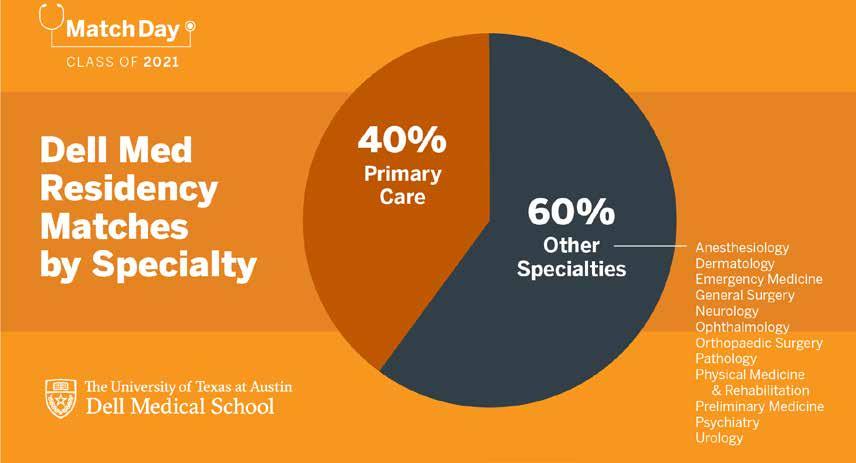
6 minute read
Legal Matters
Who Is Going to Cover Covid Hospitalizations – Commercial Health Plans or Workers’ Compensation
By C. Ryan Morgan, J.D. Tish R. Pickett, J.D. Polsinelli, PC
Advertisement
Commercial health plans are delaying and even denying reimbursement for COVID-19 hospitalizations — especially high-dollar inpatient stays. Plans are attempting to defer these claims to workers’ compensation on the health plans’ assertion that COVID-19 is a work-related illness. Some hospitals defer to health plans, as it relates to these types of claims, because it is plausible that patients could have contracted COVID-19 at work and because workers’ compensation is typically primary for coordination of benefits purposes. But workers’ compensation is notoriously complex, and hospitals may not understand the nuances of the program enough to know when it is appropriate to challenge this type of health plan denial. Failing to appeal these denials may impact hospital reimbursement, as well as a hospital’s accounts receivable days, known as “AR days,” depending on the number of COVID hospitalizations and the corresponding amount in open balances. A. Demystifying Workers’ Compensation With a Brief Overview
It is important to have a general understanding of workers’ compensation coverage. Workers’ compensation is a state-mandated insurance program that protects employers and employees from financial loss when employees suffer job-related injuries and illnesses. Virtually all employers, even small employers, must maintain workers’ compensation coverage. If an employee suffers an occupational injury or illness, an employer through its workers’ compensation carrier may provide missed wage replacement, temporary and permanent disability, death benefits, and supplemental benefits. But one of the basic benefits in all states is medical and hospital benefits. Each state regulates workers’ compensation coverage differently, which is a critical factor with respect to COVID-19 and whether a health plan may delay or deny payment. In some states, employer premiums for workers’ compensation policies are experience-rated, meaning that employers that file more claims pay more in premium. B. States’ Response to Classifying COVID-19 as an Occupational Illness
When it comes to COVID-19 as an occupational illness, states have responded differently. On one hand, 17 states and Puerto Rico have extended workers’ compensation coverage to include COVID-19 as a work-related illness. Within this group of states, there are varying degrees of coverage. The majority of these states have established COVID-19 workers’ compensability presumptions for various types of workers. In these states, if a designated worker contracts COVID-19, it is generally presumed that the worker acquired the virus during the course of employment thus eligible for workers’ compensation, including medical and hospital benefits. But employers can dispute this presumption and produce evidence to the contrary, if done so within a certain amount of time under state law. Hospitals are often left out of this decision-making process, which is unfortunate because hospitals may have additional information about where the worker contracted COVID-19.
On the other hand, some states still consider COVID-19 an “ordinary disease of life,” similar to a cold or the flu, which means the virus is not covered by workers’ compensation. Still other states have taken no action to clarify whether COVID-19 hospitalizations and treatments should or should not be covered by workers’ compensation. Workers’ compensation
see Legal Matters...page 14



Hello, Spring!
Celebrate this season and every day with us.



5011 Burnet Road. Austin 512-451-9292
All of Dell Med’s Class of 2021 Matched to Residencies Across the U.S., 40% Entering Primary Care Professions
Members of the 2021 graduating class of Dell Medical School at The University of Texas at Austin learned today that all of them “matched” and will join residency programs following graduation this May. Among the 47 fourth-year students set to graduate, 19 (about 40%) will enter primary care fields including internal medicine, pediatrics, family medicine, obstetrics and gynecology. The matches were revealed this morning, when graduating medical students across the country opened emails revealing where they would spend the next stage of their medical careers. While Dell Med students are headed for academic medical centers across the country, 32% will stay in Texas. Eight of them will remain in Travis County, where they will continue to learn from Dell Med faculty as part of residency programs jointly led with its academic medical partner, Ascension Seton. Graduating during a global pandemic has added special meaning to the medical school experience for many. “It’s bittersweet,” said Dekoiya Burton, who earned both M.D. and MBA degrees during his four years as a student. “This pandemic has been so hard for medical education and for health care providers, but graduating is such a celebratory and exciting time. Although there’s a ton of uncertainty and grief, our dreams of becoming physicians are coming true,” said Burton, who learned today that he will embark on a combined internal medicine and pediatrics residency at University of Cincinnati Medical Center – Ohio. Stepping Up to Fill a Growing Gap in the Medical Profession The concentration of graduating students planning to specialize in primary care is expected to help address the shortage of primary care physicians in the U.S., which the Association of American Medical Colleges predicts will grow to between 21,100 and 55,200 by 2032. Additionally, students matching to residencies in the Austin area means more care providers across the community. In 2012, 218 medical residents were providing care in Travis County community clinics and hospitals. That number has since grown to 320 residents in 2020. “Local residency matches among Dell Med students means that Travis County will continue to benefit from the investment in the community it made when voting to create this medical school way back in 2012,” said Sue Cox, M.D., executive vice dean of academics and chair of the Department of Medical Education at Dell Med. How Match Day Works A rite of passage for most fourth-year medical students, the Main Residency Match system of the National Resident Matching Program (NRMP) connects more than 44,000 applicants and 34,000 training positions every year. Based on a computerized mathematical algorithm, the system considers preferences of both applicants and program directors to produce the best possible outcome for filling training positions available at U.S. teaching hospitals, according to the NRMP. All participants follow the same rules and adhere to the same deadlines. Applicants and programs get to consider all options before making decisions. Not everyone matches, but for those who do, match results are

see Match...page 14
Postdoctoral Certificate in Neuropsychology
Expand your practice through this unique program designed for licensed psychologists who want to extend the scope of their assessment practices and treatment interventions to include neuropsychology.
Study with renowned neuropsychologists: Dr. Elkhonon Goldberg, New York, NY Dr. Arnold Purisch, Orange County, CA

CHANGE THE WORLD. START WITH YOURS.
www.Fielding.edu/Neuro
Dr. Elkhonon Goldberg New York, NY
Expert advice for difficult conversations.

FEATURED COURSES
ADOLESCENT SUBSTANCE ABUSE:
1.00 AMA PRA Category 1 Credit(s)™
Ethics Accredited
TEEN CONSENT AND CONFIDENTIALITY:
1.25 AMA PRA Category 1 Credit(s)™
Ethics Accredited
GENETIC SCREENING:
1.00 AMA PRA Category 1 Credit(s)™
Ethics Accredited
Join more than 100,000 medical professionals who get free CME with Texas Health Steps Online Provider Education. Choose from a wide range of courses relevant to your practice, including short tutorials and quick courses on topics like Medicaid guidelines, ethics and mental health—available 24/7. Learn more at TXHealthSteps.com.
Content on the Texas Health Steps Online Provider Education website has been accredited by the Texas Medical Association, American Nurses Credentialing Center, National Commission for Health Education Credentialing, Texas State Board of Social Worker Examiners, Accreditation Council for Pharmacy Education, UTHSCSA Dental School Office of Continuing Dental Education, Texas Academy of Nutrition and Dietetics, Texas Academy of Audiology, and International Board of Lactation Consultant Examiners. Continuing Education for multiple disciplines will be provided for some online content.



